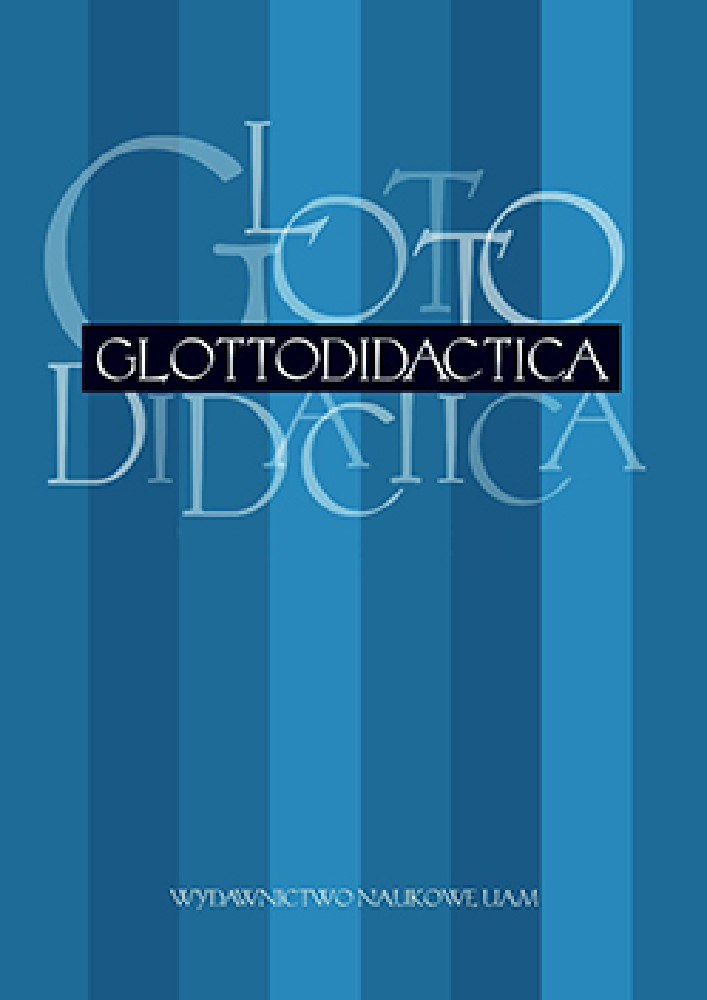Abstract
The author tries to attract attention for the careers ant the education of that what we call applied Cultural Studies after the cultural turn in the Humanities. He refers to some empirical studies and tries to put it out how differs the several institutes especially in the German spoken academic world. After all the conclusion of the author could be that there is an big demand for specialists in the area of applied cultural studies. The formation or education has to refer widely to a conception or the terminus of every-day-culture, so that it could be a big help in economic, social and education professions.References
Bachmann-Medick, D., 2010. Cultural Turns. Neuorientierungen in den Kulturwissenschaften. Reinbek bei Hamburg: Rowohlt.
Benthien, C., Velten, H. R. (Hrsg.), 2002. Germanistik als Kulturwissenschaft. Eine Einführung in neuere Theoriekonzepte. Reinbek bei Hamburg: Rowohlt.
Böhme, H., Matussek, P., Müller, L. (Hrsg.), 2007. Orientierung Kulturwissenschaft. Was sie kann, was sie will. Hamburg.
Gerlach-March, R., 2010. Kulturfinanzierung (Kunst- und Kulturmanagement). Wiesbaden: Verlag für Sozialwissenschaften.
Günter, B., Hausmann, A., 2009. Kulturmarketing (Kunst- und Kulturmanagement). Wiesbaden: Verlag für Sozialwissenschaften.
Henrichs, W., Klein, A., 1996. Kulturmanagement von A – Z: 600 Begriffe für Studium und Praxis. München: dtv.
Höhne, S., 2009. Kunst- und Kulturmanagement. Stuttgart: UTB.
Ickstadt, H. (Hrsg.), 2004. Berufe für Philologen. Darmstadt: Wissenschaftliche Buchgesellschaft (Berufe für Sprach- und Literaturwissenschaftler).
Jameson, F., 1998. The Cultural Turn. Selected Writings on the Postmodern. 1983–1998, London: Verso.
Janson, S., 2004. Studienführer Kulturwissenschaft. Würzburg: Lexika-Verlag.
Kittler, F.A., 2000. Eine Kulturgeschichte der Kulturwissenschaft. München Paderborn: Fink.
Kittsteiner, H.D. (Hrsg.), 2007. Was sind Kulturwissenschaften? 13 Antworten. München Paderborn: Fink.
Klein, A., 2011a. Kompendium Kulturmanagement. Handbuch für Studium und Praxis. München: Vahlen.
Klein, A., 2011b. Das Marketingkonzept für Kulturbetriebe. München: dtv.
Kramer, D., 1997. Von der Notwendigkeit der Kulturwissenschaft. Marburg: Jonas-Verlag.
Mandel, B., 2002. Lust auf Kultur. Karrierewege in das Berufsfeld. Kulturvermittlung. Nürnberg: BW Verlag.
Siebenhaar, K. (Hrsg.), 2003. Karriereziel Kulturmanagement: Studiengänge und Berufsbilder im Profil. Nürnberg: Bildung und Wissen Verlag.
Wolting, S., 2012. „Kein Ort. Nirgends? Überlegungen zur Institutionalisierung einer modernen Kulturwissenschaft an polnischen Hochschulen“. In: Höhne, S. (Hrsg.). Kulturwissenschaft(en). Beiträge verschiedener Disziplinen. Veröffentlichungsband einer Tagung vom 11.–12.11.2011 in Weimar. Weimar (im Druck).
Blumenreich, U., Strittmatter, T., Iber-Rebentisch, C., Unter Mitarbeit von Linn Q, (2011). Projekt „Studium-Arbeitsmarkt-Kultur“ – Arbeitsmarkt Kulturvermittlung: Ergebnisse der Interviews mit 45 ExpertInnen. Institut für Kulturpolitik der Kulturpolitischen Gesellschaft e.V.Bonn (Webseite: <http://www.studium-kultur.de/>) gefördert durch das Bundesministerium für Bildung und Forschung).
http://www.uni-hildesheim.de/qualiko/qualikolbf.html sowie http://www.kopf.ik-bildung.fh-koeln.de/content/e69/e1652/index_ger.html
License
Authors
Authors of texts accepted for publication in Glottodidactica are required to complete, sign and return to the Editorial team’s office the Agreement for granting a royalty-free license to works with a commitment to grant a CC sub-license.
Under the agreement, the authors of the texts published in Glottodidactica grant Adam Mickiewicz University in Poznań a non-exclusive, royalty-free license and authorize the use of Attribution-NoDerivatives 4.0 International (CC BY-ND 4.0) Creative Commons sub-license.
The authors retain the right to the free disposal of the work.
Users
Interested Internet users are entitled to use works that have been published in Glottodidactica since 2016, under the following conditions:
▪ attribution – obligation to provide, together with the distributed work, information about the authorship, title, source (link to the original work, DOI) and the license itself.
▪ no derivatives – the work must be preserved in its original form. Without the author's consent, it is not possible to distribute the modified work in the form of translations, publications, etc.
Copyrights are reserved for all texts published before 2016.
Miscellaneous
Adam Mickiewicz University in Poznań retains the property right as a whole (layout, graphic form, title, cover design, logo etc.).
Privacy statement
The names and email addresses published on this journal site will be used exclusively for the purposes declared by this journal and cannot be used for any other purpose or by any other party.




